Experience the Best of Vietnam on the Harvest Route
Tucked down in the center of Vietnam, the Harvest Route from Mu Cang Chai to Tu Le is sensory extravaganza.This trip is about really absorbing oneself in the rich tapestry of local culture and customs, not only about the amazing scenery. Let MOTOGO Tours delve further.
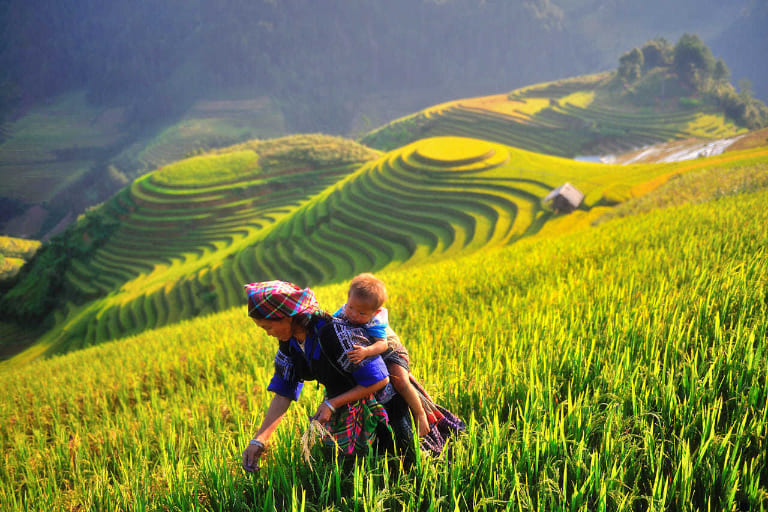
Why Visit the Harvest Route?
The Beauty of Terraced Rice Fields
Imagine large swathes of vivid green fields slung down hills, broken with golden tones during harvest season. Not only are the terraced rice fields beautiful, but they also marvels of human creativity. Every layer chronicles work, customs, and a relationship to the ground. As you go across these fields, you can practically sense the pulse of the nearby farmers who have cultivated this scene for many years.
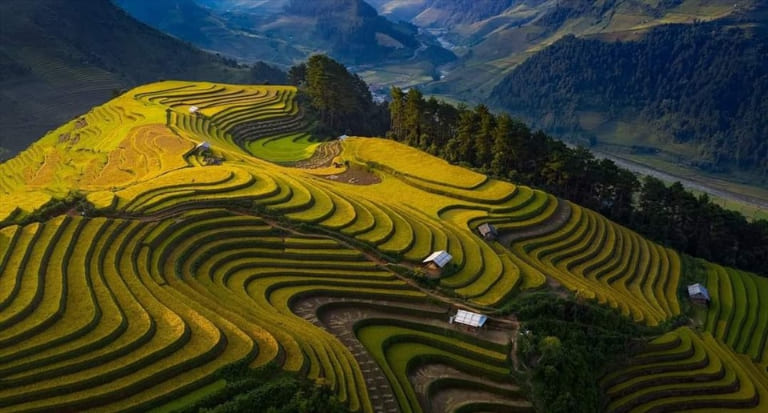
Cultural Richness and Diversity
Along the Harvest Route, you will come across many ethnic communities with different customs and traditions. From their traditional clothes to their mesmerizing folk dances, the H’Mông, Thai, and Dao people provide vivid hues to this area. Interacting with residents helps you to understand their way of life, so enhancing your trip.
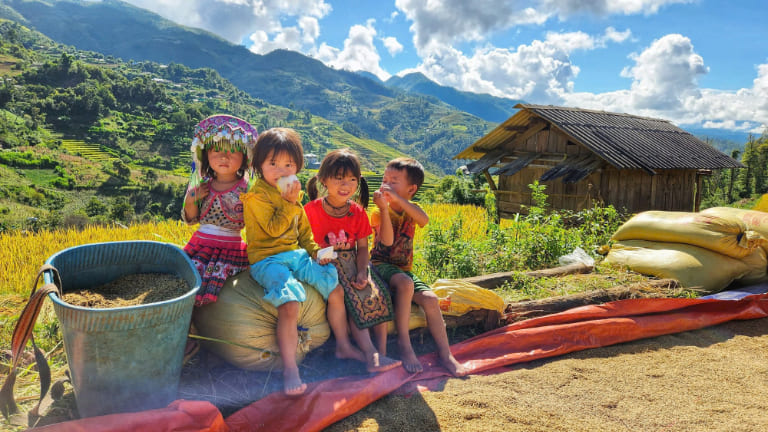
The Perfect Time to Visit
Usually spanning September to October, the Rice Harvest Route is best experienced at this period. The fields become golden, making an amazing contrast against the blue heavens and green mountains. The photographer’s utopia is here! Plan your vacation during this time to see the lovely surroundings and the busy activity in the fields.
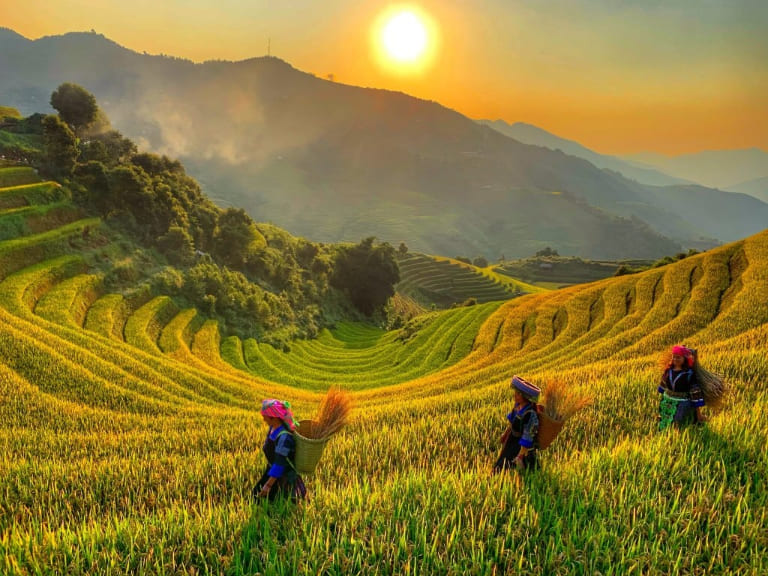
>>> Explore: Tuyen Quang Loop: Explore Vietnam’s Hidden Gem
A 3-Day Adventure in Harvest Route
Do you wish to really sink yourself into nature and culture and get a break from the busy metropolitan life? This three-day trip to Harvest Route guarantees an amazing encounter full of cultural discoveries, local cuisine, and breathtaking scenery.
Day 1: Hanoi to Tu Le (240 km)
The journey starts with a picturesque drive from Hanoi to Tu Le, a little village well-known for its real-life local experiences and magnificent terraced rice fields.
Morning – Leave Hanoi: Leave early from Hanoi since the travel to Tu Le takes nearly six hours and covers about 240 kilometers. The trip will weave over twisting mountain roads with breathtaking vistas of terraced crops and rich green valleys. To capture the breathtaking surroundings, be ready for many picture stops along the road.
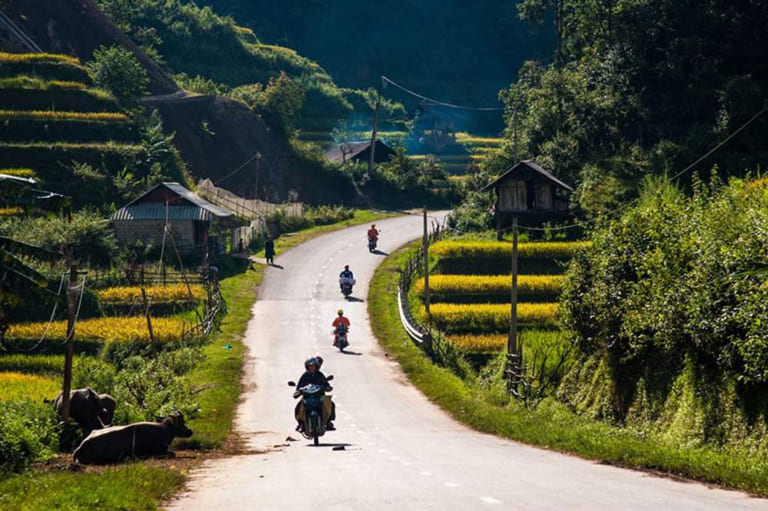
Midday – Stopover at Nghia Lo: When you get Nghia Lo—about the midway point—take an earned break. Here you can unwind and savor a neighborhood lunch. Valleys and hills covered in terraced crops round the town, giving a taste of the natural splendor you will find in Tu Le and beyond.
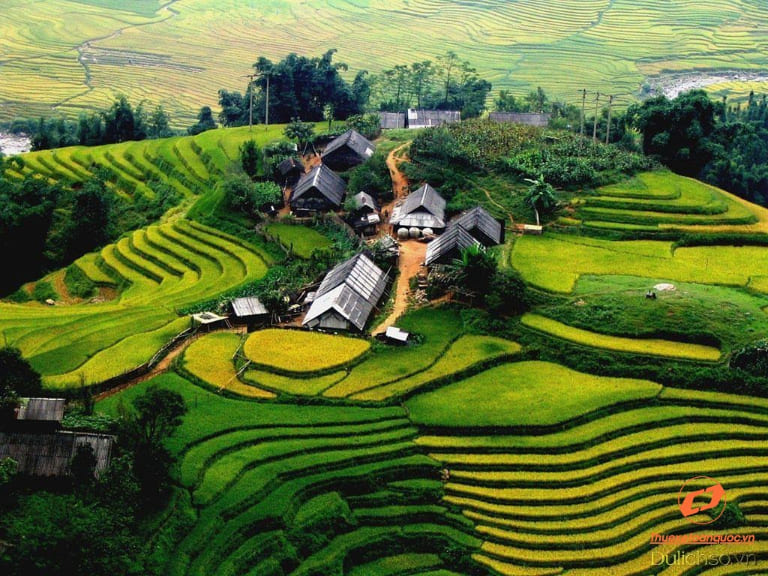
Afternoon: From Nghia Lo to Tu Le, the last stage of the trip runs roughly 94 kilometers. You will cross Nam Bung village as you get ready Tu Le, where you may see daily highland life. You might find youngsters playing in the fields or residents offering corn on the side-of-the-road.
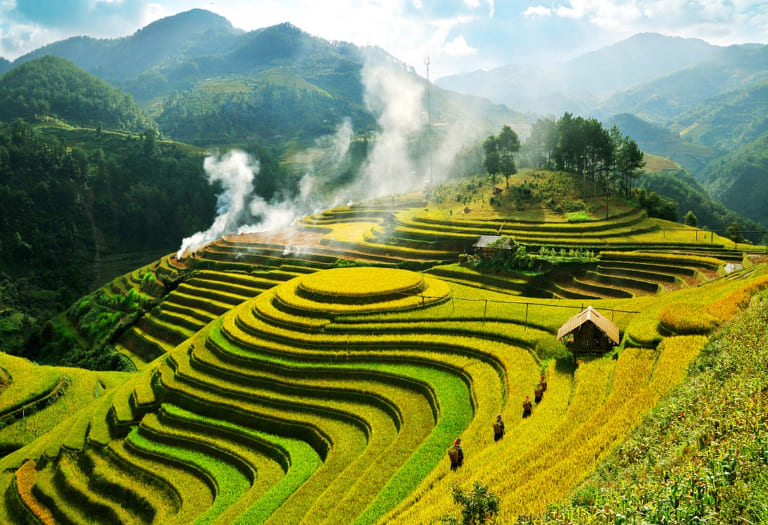
Once you reach Tu Le, look for a nice homestay where you may drop off your bags and relax. Once settled, stroll slowly about town to investigate the neighborhood market. Try the well-known Tu Le sticky rice (Nếp Tú Lệ), a local specialty with a unique flavor and texture derived from rice produced in mineral-rich soil of the area.
Evening: Just a short distance from the town center, relax at the natural hot springs in Chao village following a tough day on the road. Given their medicinal qualities, the hot springs are a great place to unwind your muscles following a difficult trip. Men and women separate the swimming area, thus keep in mind to be kind and maintain the calm in the surroundings
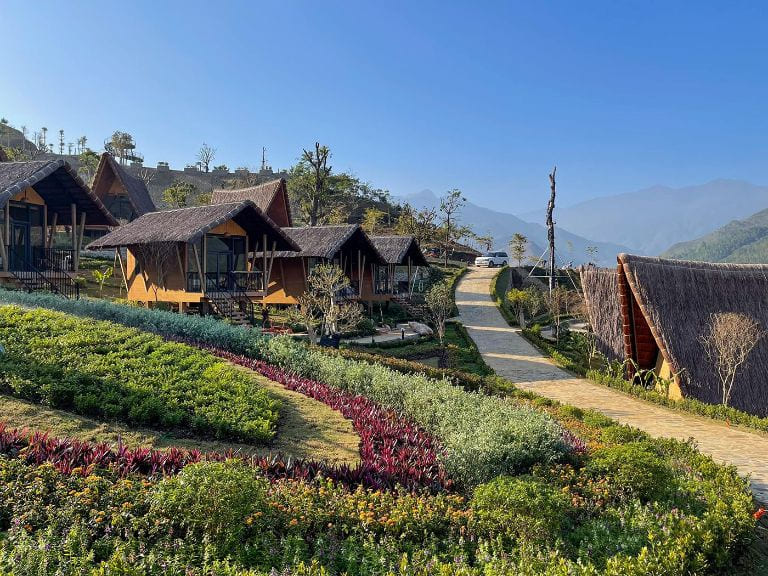
For the most daring diners, finish the day with a filling meal of local cuisine such grilled mountain pork, wild vegetables, and roasted insects. Spend the evening in your homestay to be ready for yet another day of discovery.
Day 2: Tu Le to Mu Cang Chai (35 km)
Deeper into the highlands, the second day will explore the well-known terraced fields of Mu Cang Chai, sometimes regarded as one of Vietnam’s most exquisite rice-growing areas.
Morning – Sunrise Over the Terraced Fields: Get early to see the terraced fields covered in golden light during daybreak. The morning mist gradually disappears to expose a scene akin to a picture come to life. Before breakfast, sip hot coffee and take in the view. Then, review your homestay and be ready for your next round of travel.
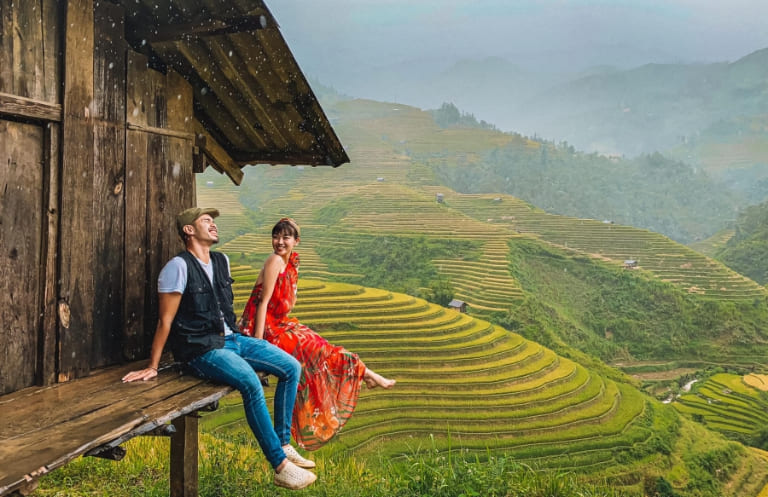
Overcome Khau Pha Pass: One of Vietnam’s four fabled mountain crossings, Khau Pha Pass—known for its steep slopes and hairpin turns—is crossed on the road from Tu Le to Mu Cang Chai. The pass provides amazing views of the limitless rice terraces below as well as the valleys. The fields will be golden when the rice ripens if your trip falls between September and October.
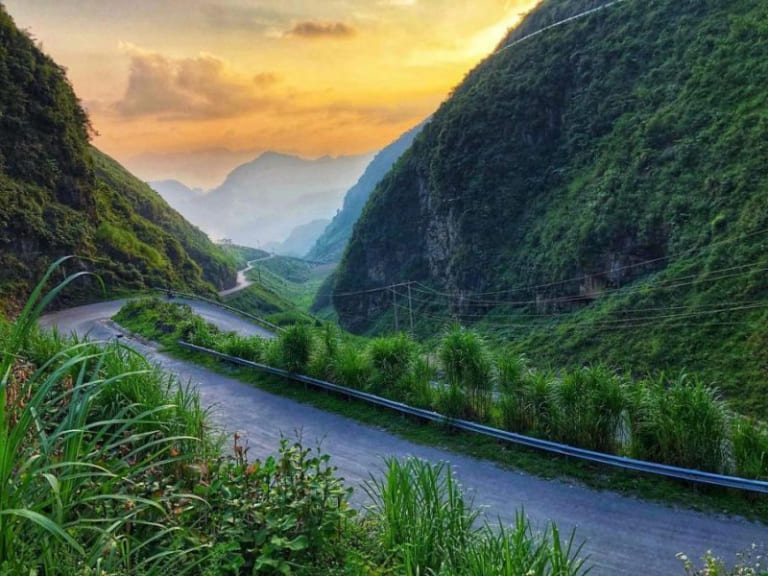
Khau Pha Pass is also a well-liked paragliding site for thrill-seekers. Attracting paragliders from all throughout the nation, the event “Flying Over the Golden Season” provides a bird’s-eye perspective of the stunning surroundings. Visit Lim Mong or Lim Thai villages if you would want a more subdued experience since the environment is more laid back there.
Midday – Arrival in Mu Cang Chai: Once at Mu Cang Chai, retire into your homestay and savor a traditional lunch. The village is tucked in a valley surrounded by seasonalally changing tiered rice fields coated with hues. Take a quick nap to refuel after lunch before starting a day of discovery.
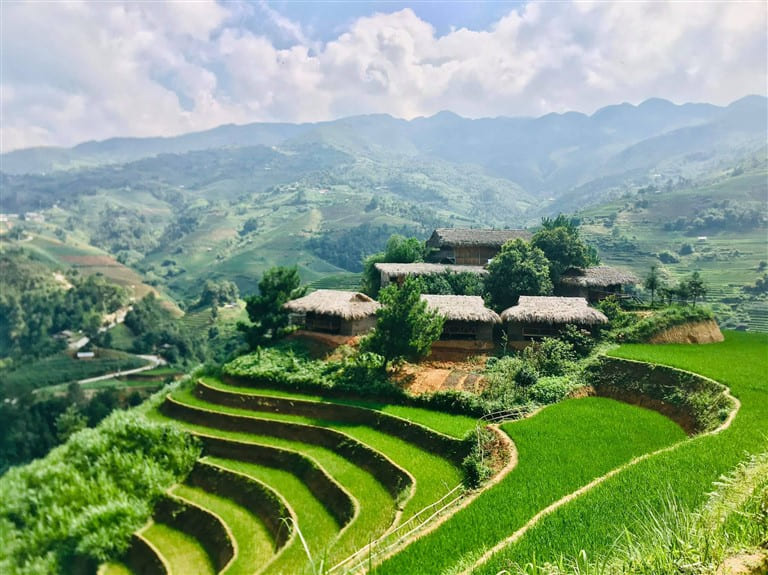
Afternoon – Discover Mu Cang Chai’s Iconic Landscapes: Starting at Ba Nha Bridge, roughly ten kilometers from the town center, Photographers trying to capture the “Mam Xoi” (strawberry-shaped) terraced fields find great popularity in this area. For a nominal cost, local motorbike taxis will transport you up to the viewpoint where you will be rewarded with panoramic views of the verdant surrounds.
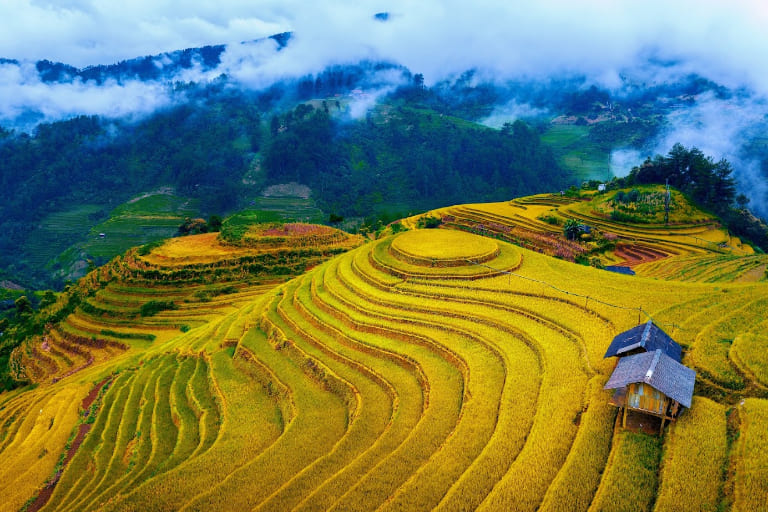
Then, travel to Che Cu Nha village, a Hmong ethnic community around seven kilometers from the town. The community is well-known for its own cultural customs and captivating, centuries-spanning rice terraces. Proceed on to La Pan Tan, a recognized National Cultural Heritage site, where the terraced fields mimic heavens’ fingerprints. Time your visit just so to catch the fields glowing in the warm tones of the sunset sun, so accentuating the landscape.
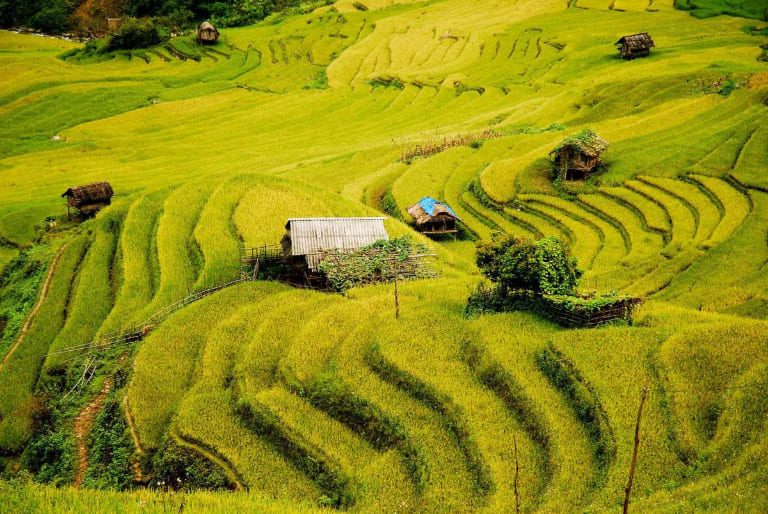
Evening – Return to Mu Cang Chai: See the town again for dinner following a day of sightseeing. Sample regional food including fermented corn wine, buffalo meat, and grilled fish. Spend the evening in a homestay where you can relax and tell tales to your host family or other guests.
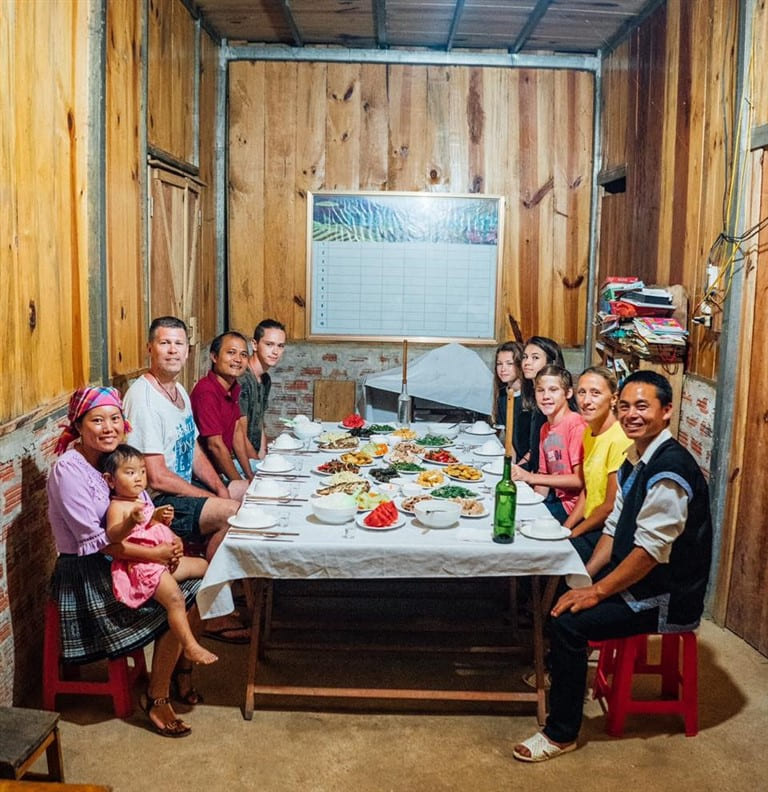
Day 3: Mu Cang Chai to Hanoi
You will be returning to the vibrant metropolis of Hanoi during the last day of the trip, but not before savoring some more breathtaking views.
Morning – Explore Kim Noi Village: Start your day with a glimpse of sunrise then eat breakfast at the guesthouse. Visit Kim Noi village briefly to get the real Thai ethnic group way of life. See traditional stilt homes, rice paddies, and daily life playing out throughout the community. This is a fantastic chance to bring some locally manufactured goods, such herbal remedies or handcrafted fabrics, home.
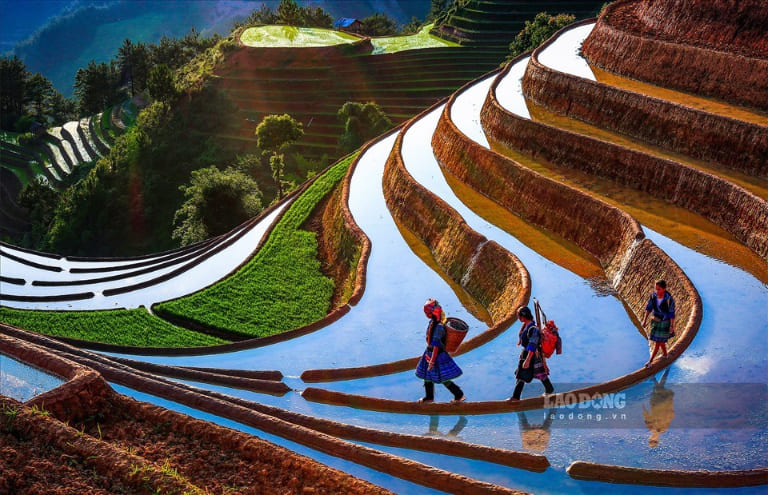
Stop at the neighborhood market before departing Mu Cang Chai to pick up some goodies for gifts or personal consumption. Popular things are the classic Tu Le sticky rice, dried mushrooms, and wild honey.
Midday – Lunch at Nghia Lo: Lunch breaks in Nghia Lo should be had on the way back to Hanoi. Think back on the trip while you savor a meal and get ready for the last stretch.
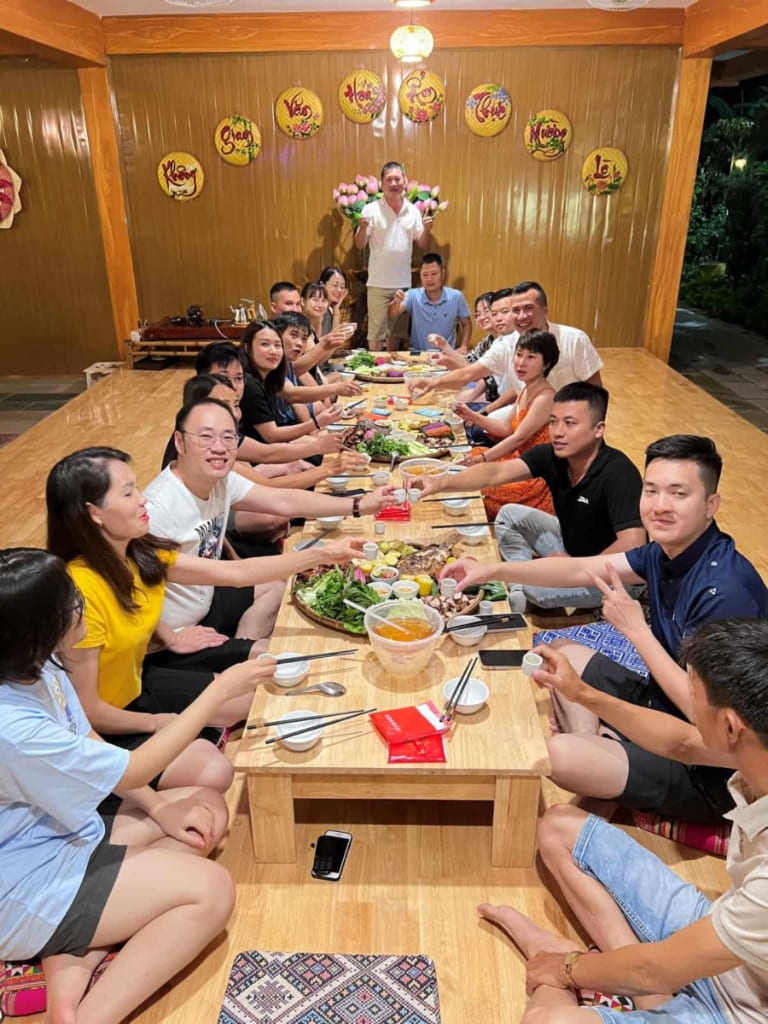
Afternoon – Come back to Hanoi: Absorb the last views of the grand mountain scenery as you return to Hanoi. Late afternoon arrival in the city marks the end of your three-day journey.
>>> Explore the Scenic Hanoi – Lao Cai – Hoang Su Phi Route
Essential Tips for the Harvest Route
Here are some great ideas to help you enjoy and safely travel:
- Best Time to Visit: Ideal time to visit Mu Cang Chai is from September to October, during the “golden season” when the rice fields turn yellow. The “water-pouring season,” May to June, is another fantastic time when the terraces fill with water and create a shimmering effect under the sun.
- Driving Safety: This area’s roads can be twisting and steep with sharp turns. Particularly with regard to the brakes, drive gently, maintain a constant speed, and make sure your car is in good shape.
- Packing Essentials: Bring cozy clothing since, especially at night, the mountains’ temperature can be frigid. Additionally advised are a hat, some decent walking shoes, and sunscreen.
- Local Etiquette: Respect local customs, particularly with regard to visits to ethnic villages. Before photographing someone, always get permission; try not to be invasive.
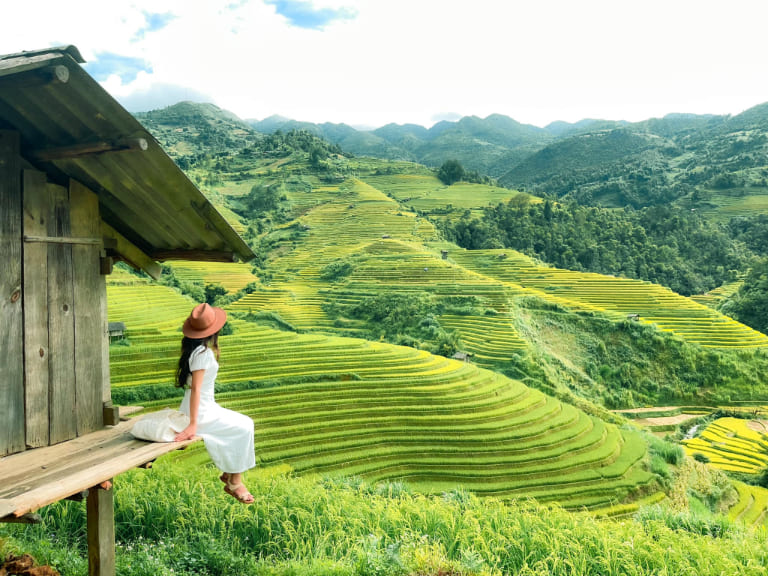
Through Vietnam’s northern highlands, the Harvest Route is a once-in-a-lifetime trip where the beauty of the country and the hospitality of its people come together to produce a very different travel experience. The Harvest Route promises lifetime memories with the correct preparation, an adventurous spirit, and a curiosity driven attitude. So get ready and pack your things to start one of Vietnam’s most beautiful and culturally enlightening adventures.
Related Posts:
- Beautiful Routes in Northern Vietnam: Discover Scenic Journeys and Culture
- Explore Vietnam’s Limestone Loop: Hanoi to Lao Border
- The Cloud-Chasing Route: A Dream Journey for Adventure Seekers
- Sin Ho Loop: A Complete Guide to Northern Vietnam’s Hidden Adventure
- The Ultimate Guide to the Binh Lieu Loop: A Hidden Gem in Northern Vietnam






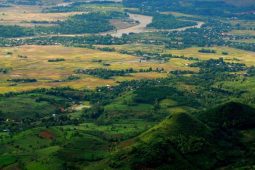

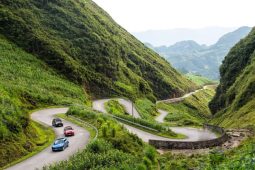


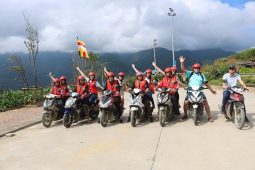
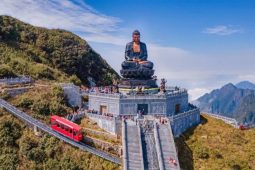
Be the first to comment!